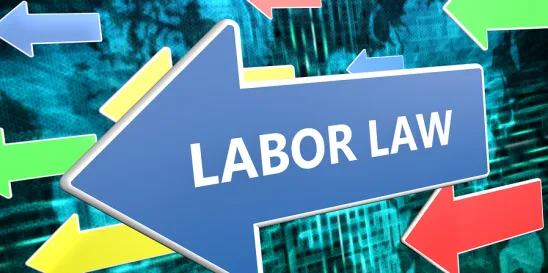On the labor law front, 2023 saw some monumental changes, to say the least. From significant changes to the unionization process to the first ever simultaneous strike ever by the UAW at the “Big 3” to NLRB scrutiny of non-compete agreements and more, many would say it was historic by any measure. With an active National Labor Relations Board (NLRB) still in place and big labor enjoying a renaissance – at least from a public attention standpoint – 2024 likely has in store some more eye-popping developments. Here are my top three to keep an eye on in the New Year.
1. Will Union Numbers in the Private Sector Increase?
Despite garnering more media attention than they have in years due to high-profile labor disputes like the ongoing national unionizing drive at Starbucks and the UAW strike at the Big 3, unions have failed to augment their numbers, on a percentage basis, in the private sector. In fact, the latest numbers show unionization rates are at an all-time low among those workers, as a mere 6 percent belong to unions. While union election petitions (and wins) are up, they simply aren't enough to stem the losses from years of decline. We'll see if some of the renewed attention over this past year helps reverse unions' fortunes.
2. Will Weingarten Rights Be Imposed in Non-Union Workplaces?
Any employers who have unions are (or at least should be) readily familiar with “Weingarten rights.” For those who are unfamiliar, these rights stem from a decades-old U.S. Supreme Court case that held an employee represented by a union has the right, upon request, to union representation in any investigative interview that could reasonably lead to discipline of that employee. In other words, those workers can have a union steward attend and help “represent” them at any such meeting.
This is something non-union employers traditionally have not had to navigate except for a very brief period in the early 2000s. The current NLRB general counsel is looking to change that. She has indicated several times she believes Weingarten rights should apply in non-union settings. Will 2024 be the year that happens? We'll see.
3. Will the NLRB Drop Its Requirement For Employees to Show an “Adverse Action” in Certain Cases?
Under most, if not all, labor and employment statutes, including the National Labor Relations Act (NLRA), if an employee is claiming discrimination of some kind, he or she must show some sort of adverse action (e.g., discipline, demotion, termination, etc.) by the employer to prevail – especially if the worker is seeking monetary compensation. Apparently, that may no longer be the case in charges brought before the NLRB.
According to a recent article from Bloomberg Law, “The National Labor Relations Board’s top lawyer wants to eliminate the current requirement that a worker must be fired, disciplined, or suffered other adverse employment actions for agency prosecutors to prove illegal anti-union discrimination. NLRB General Counsel Jennifer Abruzzo asked for the change in legal standard last week as part of a challenge to an administrative law judge’s decision dismissing allegations that Starbucks Corp. violated federal labor law by denying a worker’s transfer requests because of her union activity.”
There's a lot to keep an eye on in labor law and labor relations these days. These are three of the issues I'm watching closely as the new year unfolds. Many more are on my list as well. Happy New Year!




 />i
/>i

